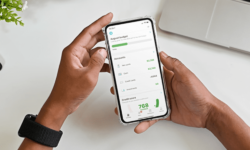How to Get Mortgage Pre-approval & When to Start Trying
We all want to own a home at one point in our lives, unfortunately not all of us are lucky to afford cash buying. Therefore, the majority result in securing a mortgage loan. However, the process of securing a mortgage is not as easy as going to a bank and securing a loan. You have to undergo various checks and fulfill several requirements before you get a mortgage pre-approval.
If you are ready to own a home, this article will give you all the information you need to get a mortgage pre-approval and enlighten you on when to start applying. First, let’s understand what a pre-approved mortgage is.
- What is a Mortgage Pre-Approval?
- Is Pre-Qualification the Same as Pre-Approval?
- Why Would You Want a Mortgage Pre-Approval?
- What Documents do You Need for a Mortgage Pre-Approval?
- How Long Does it Take For You to Get Pre-Approved?
- When Should You Start Trying For a Mortgage Pre-Approval?
- The Step-By-Step Process of the Mortgage Pre-Approval Process
- How Long Does a Pre-Approval Last?
- Summing Up
What is a Mortgage Pre-Approval?
A mortgage pre-approval is the process of determining the amount of money you can borrow to buy a home. The lenders conduct the pre-approval process, and they assess your financial profile, including your income, savings, investments, and debts.
They also perform a hard credit inquiry and leave no stone unturned. Once they have gathered all the information, they can estimate the kind of house you can afford, and then they will pre-approve you for a specific loan amount.
When a lender issues a pre-approval, it is an indication that they are ready to move forward with the loan. Pre-approval also helps you set a price range when shopping for your dream home and puts you in a much better position when talking to the sellers since they know that a lender backs you
Is Pre-Qualification the Same as Pre-Approval?
You’ve probably heard some people interchangeably using pre-approval and pre-qualification together, but the two are not the same.
Pre-qualification is the first step you take when evaluating whether you are qualified for a mortgage. The lender conducts an informal overview of your finances based on the information you tell him/her about your credit, debt, income, investments, and assets. And based on this information, he estimates if you are eligible for a mortgage and how much you can qualify for.
Since you are not required to provide any documents during pre-qualification, the estimates may change as the lender get more information
Pre-approval is the next step after pre-qualification, where you are required to fill out a mortgage application form and provide your Social Security number. The lender uses it to conduct an in-depth review of your documents. The lender pulls all your financial information during this process, including credit report, income, assets, and debt.
The lender then uses this information to calculate your debt-to-income and loan-to-value ratios, which helps him to determine your interest rate and mortgage loan type.
Read Also: First-time Homebuying Process
Why Would You Want a Mortgage Pre-Approval?
If you are looking to buy a home, you should get pre-approved before you start looking at homes because of the reasons below:
- It gives you the chance to compare lenders instead of rushing and settling for a lender to meet the terms of a purchase contract. Note that being pre-approved does not tie you down to that particular lender, but it makes it easy to close on a loan since they have all your documents on file.
- It will help you know the amount you qualify for, so you can set a price range. This helps in eliminating a lot of houses that are outside your price range. It also protects you from the disappointment of falling in love with a home you cant afford.
- When you find your dream home, you are in a position to make an offer. It serves as a negotiating tool since you will be able to close on a loan faster than a person without a pre-approval. It is also appealing to sellers since they know you have a lender, and most often, the seller will choose you amidst many offers.
- It helps you keep your documents in order.
- It gives you a chance to improve your credit score by reducing your debt while making sure you stay out of debt.
- Looking for and buying a house can be overwhelming, but the process is made much easier with a pre-approval.
What Documents do You Need for a Mortgage Pre-Approval?
When you apply for a pre-approval home loan, getting all the documentation ready is the most tiring part. The lender will have to check the following:
- Credit history and credit score
Lenders will pull your credit report and credit score from the credit bureaus. They assess your payment history, whether you pay bills on time, the number of credit cards you have open, and for how long.
They will also evaluate your credit utilization, which is the amount of credit you have and can actively be used. Lenders require that you maintain a limit of 30% or below to help boost your credit score.
However, you might have a problem getting a home loan pre-approval if you do not have any open credit card or any other type of debt. Therefore, make sure to open a starter credit card with a low credit line limit and pay bills on time. Be patient when building your credit profile, as it could take up to six months to reflect on a credit report.
Learn how to fix bad credit fast if your credit score is low.
- Debt-to-income ratio (DTI)
Your DTI plays a huge role in the mortgage pre-approval process as it measures all your monthly debts and compares them with your monthly income. The lender adds up all the debts including, student loans, car loans, credit cards, and the new mortgage, and then subdivides to total against your monthly income to get a percentage.
To qualify for a mortgage, your DTI should be below 43% of your gross monthly income. If your ratio is higher, lenders view you as a risk of the likelihood of you struggling to repay the mortgage loan, and your other debts are high.
So make sure that your DTI is below 43% for your home loan pre-approval to pass and enjoy competitive interest rates. It also shows lenders that you can pay your bills, including the loan on time, making you more appealing.
Read Also: Quick and Easy ways to Get out of Debt
- Loan-to-value ratio (LTV)
This is where the lenders evaluate the value of the home against the loan amount. It is calculated by dividing the loan amount against the home value. The value is achieved after property appraisal, and it might be higher or lower than the sellers asking price. The down payment also plays a huge role, and the higher it is, the lower the loan amount, resulting in a lower LTV ratio.
Note: if you pay less than a 20% down payment, you might be required to pay for private mortgage insurance, which protects the lender if you fail to repay your mortgage loan. And to lower your LTV, you either have to increase your downpayment or downgrade the house.
- Employment and income history
Having a steady source of income is attractive to mortgage lenders as it assures them you can afford to repay the loan. That is why you asked to provide your W- 2 tax form for the last two years and your employer’s letter and contact information. The 60-day bank statement confirms that you earn enough money to pay your bills and repay the mortgage loan.
- Assets and liabilities
This involves your savings and debts. They help the lender determine how much you are worth.
So, when you apply for a mortgage home loan, think of pre-approval as a physical investigation of your finances. This is because they will probe into all corners of your financial life to ensure that you will eventually repay your mortgage.
Read Also: When to refinance your mortgage
After submitting your mortgage loan application, you are required to provide them with the following documents. The documents will speed up their investigation and secure mortgage approval. These include:
- Bank statements for the last two months
- One month payslip
- W-2 tax returns for the past two years
- Schedule K-1 (Form 1065) for self-employed mortgage borrowers
- Income tax returns
- Driver’s license or passport
- If you are receiving the down payment from a relative as a gift, make sure to attach the gift certificate.
How Long Does it Take For You to Get Pre-Approved?
The timeframe is dependent on the complexity of your financial status. Still, it usually takes a few days to receive a mortgage pre-approval if you have all your documents ready and your credit looks good. However, if you need an income audit, it will take several weeks.



